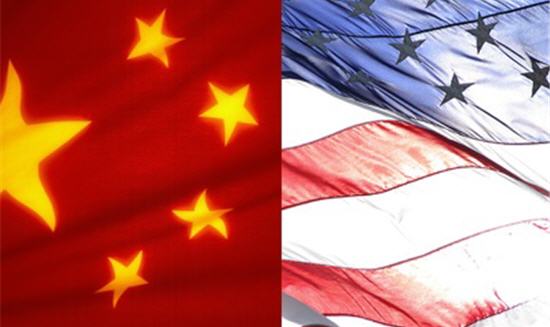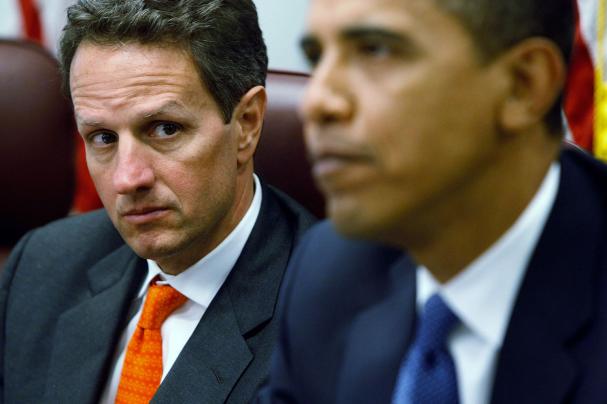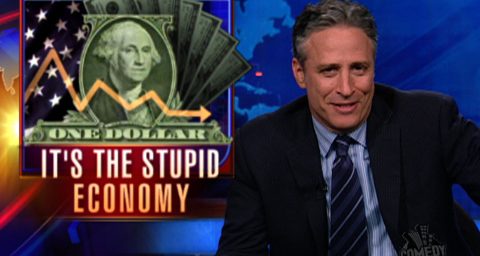Chinese Currency Manipulation
There isn't much doubt that China is manipulating its currency for competitive advantage. What can be done about it?

There’s a matching pair of articles on Chinese currency manipulation that I wanted to commend to your attention. First, Treasury Secretary Timothy Geithner notes that since the Chinese leadership made its announcement of its intent to let the Chinese yuan reflect market forces very little has actually been done:
WASHINGTON — Treasury Secretary Timothy Geithner said China has not done enough to allow its currency, the yuan, to rise.
“China took the very important step in June of signaling that they’re going to let the exchange rate start to reflect market forces. But they’ve done very, very little, they’ve let it move very, very little in the interim,” Mr. Geithner said in an interview with The Wall Street Journal on Friday.
Since the announcement took place immediately preceding the G-20 meeting it’s hard to see it as anything but a PR stunt or, as Yves Smith characterized it, “a head fake”. To see what has actually happened this chart is a handy illustration. Note the scale.
This morning Paul Krugman, returning to his frequent theme of China’s currency manipulation, notes the difference between our response to the Chinese authorities’ purchase of U. S. bonds (an instrument of currency manipulation which also has the effect of temporarily bamboozling comparative advantage) and that of Japan:
Last week Japan’s minister of finance declared that he and his colleagues wanted a discussion with China about the latter’s purchases of Japanese bonds, to “examine its intention” — diplomat-speak for “Stop it right now.” The news made me want to bang my head against the wall in frustration.
You see, senior American policy figures have repeatedly balked at doing anything about Chinese currency manipulation, at least in part out of fear that the Chinese would stop buying our bonds. Yet in the current environment, Chinese purchases of our bonds don’t help us — they hurt us. The Japanese understand that. Why don’t we?
The primary mechanism of China’s currency manipulation is its requirement that all Chinese companies exchange dollars they obtain from trade with the U. S. for yuan at state-owned Chinese banks where the exchange takes place at rates established by the authorities. There is really no question that China is a currency manipulator and I think it’s reasonable to ask, as Calculated Risk does, what can be done about it? The list of alternatives for action is substantial.
IMO the very first thing that should be done is that the U. S. should insist that the Chinese comply in full immediately with the terms they agreed to in order to be admitted to the WTO and that China’s membership in the organization should be suspended pending such compliance. China is already several years late in the banking reforms it agreed to. The U. S. should then announce a system of heavy tariffs that will be placed on Chinese imports in the event of non-compliance.
The U. S. should insist that China conform in full with its obligations to enforce the intellectual property rights of U. S. companies. This encompasses everything from computer software and electronic components to pharmaceuticals and the cost to American businesses of China’s routine piracy is estimated at anything from tens of billions to trillions of dollars.
If China retailiates with measures of its own it will only further sour the attitudes of American businesses on the value of doing business in China. With its heavy dependency on export trade for economic growth China is far more vulnerable to trade war than we and I have little doubt that the Chinese authorities, while well aware of that vulnerability, are also willing to let us shoot ourselves in the foot as long as we’re willing to keep doing it.
I’m sure that someone is sure to mention our vulnerability to a possible Chinese decision to stop buy our bonds or to dump those they hold on the market. This betrays a lack of understanding of banking and currency. The Federal Reserve could cut a check for China’s full holdings of U. S. bonds tomorrow with, in all likelihood, very little in the way of adverse effects unless the Chinese are willing to very literally destroy their own wealth in spite.






Sucks to be us, eh? The weak man in the negotiation? Reduced to name calling?
Our “currency manipulation,” no matter how many times repeated, is just their “monetary policy.”
It isn’t in our favor certainly, but they didn’t invent it for us.
(We’d be making a stronger move if we were willing to tariff their goods, rather than just whine.)
BTW, it would be interesting to see some calcs run with your “heavy tariffs.” It would be easy, wouldn’t it, for them to become self-defeating? Also, they’d have to be on all imports wouldn’t they, to prevent Chinese goods from being landed in Mexico for a “Hecho en” tag?
A true floating Yuan would be bad for everyone involved…that is unless you really like paying $15.00 for something that now costs you $5.00. Go ahead, make a trip to Walmart, purchase $100.00 worth of things for your person, your house, and your lawn – then flip each item over when you get home to see where it was manufactured.
If the Yuan is untied from the dollar that shopping trip will cost you $175 in 6 months and $250 in a year.
Not to mention the loss of income and jobs from the decrease in sales due to the rising cost of cheap goods on the US side. From the importing and handling, to the warehousing and sorting, to the stocking and selling we have an entire economy based on buying goods cheaply and importing them for sale.
You can talk about the hypothetical reversal of manufacturing jobs that would come from this destabilization but those jobs aren’t coming back to the US from China – they’ll go to Vietnam or Africa, but in the interim we’ll just pay more for our crap and do so with a higher unemployment rate to boot.
I sometimes think that we should have gone with what I called “almost-free trade” back when we were doing globalization discussions. Stepping down from the old tariff regime to something small and uniform (5%?) on all imports would have given US industries and workers just a little bit of an edge, and time to adjust.
The thing is, I’m not sure this is all currency related. I think the invention of the shipping container might really be bigger in making all this work. That one innovation changed everything. It reduced the “labor component” in shipping from some factory in China to some store in Texas to practically nothing.
I agree that it would be interesting. I suspect that so much of what we import from China is sufficiently low margin that the opportunities for arbitrage of the sort you’re describing aren’t particularly great.
Since I think the realignment that needs to take place in our economy will necessarily require us to deemphasize personal consumption. Regardless of how my earlier post on the subject might have been interpreted I think there are some ways in which we should be more like Germany than we are. One is that we should buy a lot less stuff than we do. My experience in Germany was that the Germans tended to buy less and expect more of what they bought than we do. I think that change is going to take place here one way or another.
And “sucks to be us”? Rather it sucks to be the Chinese. I think we have a significantly stronger hand than the Chinese which we’re playing very poorly.
BTW, I welcome alternative solutions.
The time to fight an economic war with China passed a long time ago.
Accept it and be grateful China’s 10% annual economic growth keeps us all afloat.
Sucks to be Chinese too 😉
To me it all revolves around that history, the American free-trade movement coming as it did on the heels of the shipping container revolution. It would be a different world if we’d decided not so much to restrict trade, but just to take a little more of our government revenues from that source.
Starting now, it’s really hard. There are many who will say Smoot-Hawley as soon as you say tariff. And, in a sever contraction, that’s a factor.
Maybe the best we can hope is that there are enough folks out there who aren’t content being sidelined by the recession, and are working on exportable products, services, and (yes) intellectual property.
I question whether or not they actually have the enforcement capabilities to do so (and a lot of the copyright stuff sits on the shade of legality, like requiring foreign companies to disclose technical stuff to their domestic Chinese partner companies).
We should actually adjust our IP enforcement to Chinese levels ;-), then you’d see some manufacturing action.
I am with you on this one Dave. I would prefer to act now while Japan has made this an issue. It would be even better if Europe joined in, but not sure we have that much to lose by going ahead after at least trying to include them. Wonder what James thinks about that likelihood?
Steve